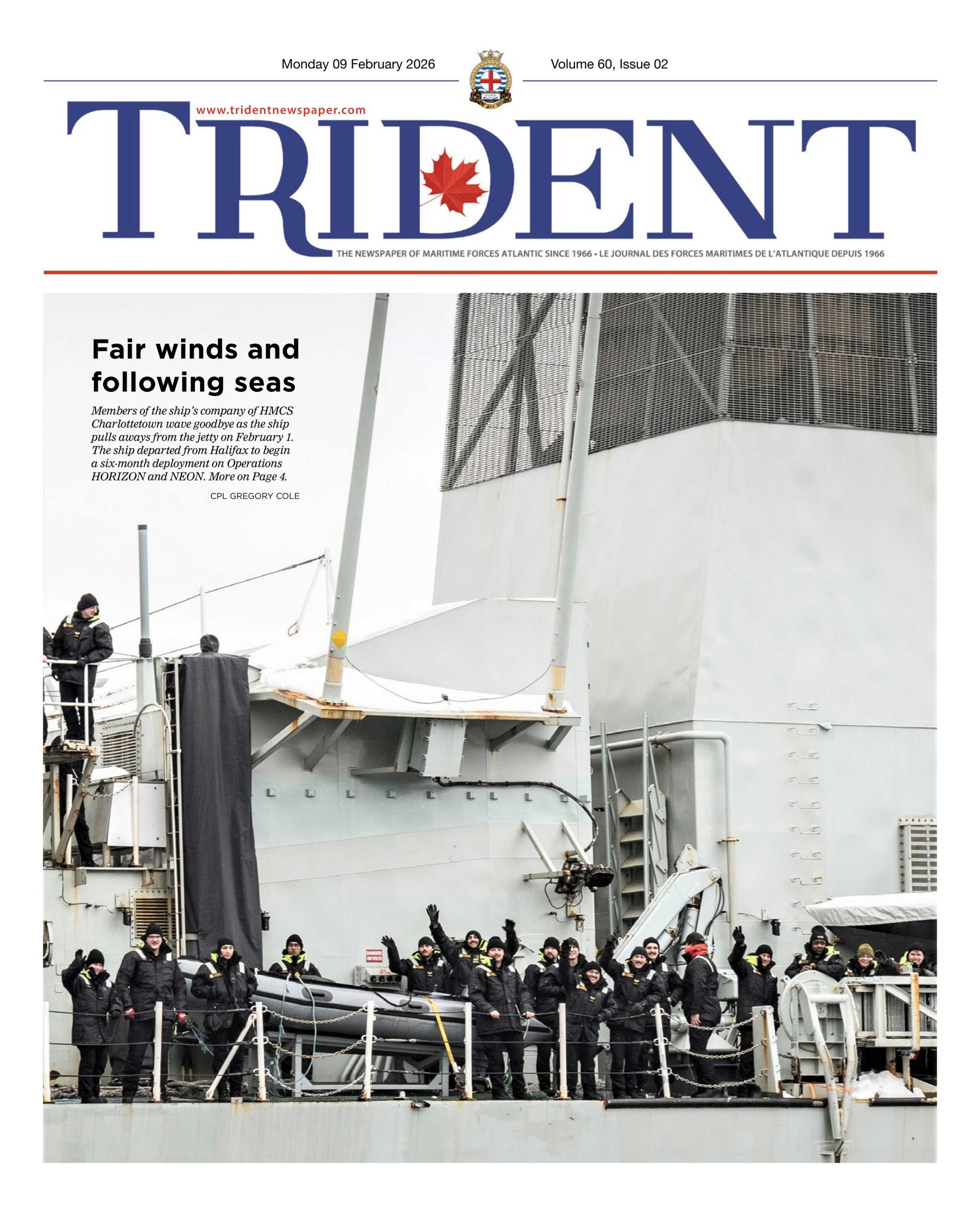
Photo: MONA GHIZ, MARLANT PA
Defence Minister highlights importance of Op REASSURANCE
By Ryan Melanson,
Trident Staff
The deployment of HMCS Ville de Québec to Op REASSURANCE marks nearly four years of Royal Canadian Navy support to the NATO mission, which began in 2014 in response to Russia’s aggressive actions in Crimea and Eastern Ukraine.
While in Halifax to see off Ville de Québec and celebrate the first operational deployment of the CH-148 Cyclone, Minister of National Defence Harjit Sajjan spoke about the importance of the mission and the extension of the CAF role beyond the original four-year mandate.
Op REASSURANCE involves land, sea and air activities in and around NATO member countries in Central and Eastern Europe, and is meant to assure our allies that they will be defended against further aggressive actions in the region by Russia or any other nation.
Four years in, these assurance and deterrence measures are still needed, Sajjan said.
“We’re not here to take aggressive actions of our own or to create conflict, we’re reacting to aggressive actions and trying to prevent future conflict. At the end of the day, we’ll do what we feel is necessary in order to give confidence to our allies.”
And considering the dynamic threats faced by NATO today, the addition of the technologically-advanced Cyclone to the Maritime Task Group, integrating with a newly-modernized Halifax-class frigate, makes the Canadian contribution even more significant.
“This is brand-new technology that’s going to add to the already-tremendous capability of our ships and the work they’re doing,” the Minister added.
“As a collective, working with our allies, it send a very strong message of deterrence. It says nations are coming together and bringing their best technology and best capability to deter nations who are starting to go against the international rules-based order.”
In addition to support to the Op REASSURANCE Maritime Task Force and Enhanced Forward Presence Battlegroup Latvia, Sajjan also highlighted other contributions to NATO, including the recent announcement that Canada will deploy 250 troops this fall to lead a new NATO training mission as part of Operation IMPACT in Iraq.
The Minister also met with a number of Ville de Québec sailors and their families prior to the ship’s departure on July 18, which provided an opportunity to highlight the federal government’s newly-announced Seamless Canada initiative. Through meetings with provincial and territorial governments across the country, the program is aiming to improve and simplify the process of moving across provincial lines for posted CAF members and their families. In New Brunswick and Nova Scotia, for example, governments have recently made moves to help military families get access to health care and family doctors in a timely manner.
Alongside new funding for Military Family Services announced in Canada’s latest Defence Policy, as well as tax-free pay for deployed members, Seamless Canada is part of a new focus on the health and wellbeing of CAF personnel and their families, Sajjan said.
“The number one asset is our people and the families who support them, so we’re doing a lot of things behind the scenes that I feel very proud of on this issue, and we’re going to continue doing that.”






